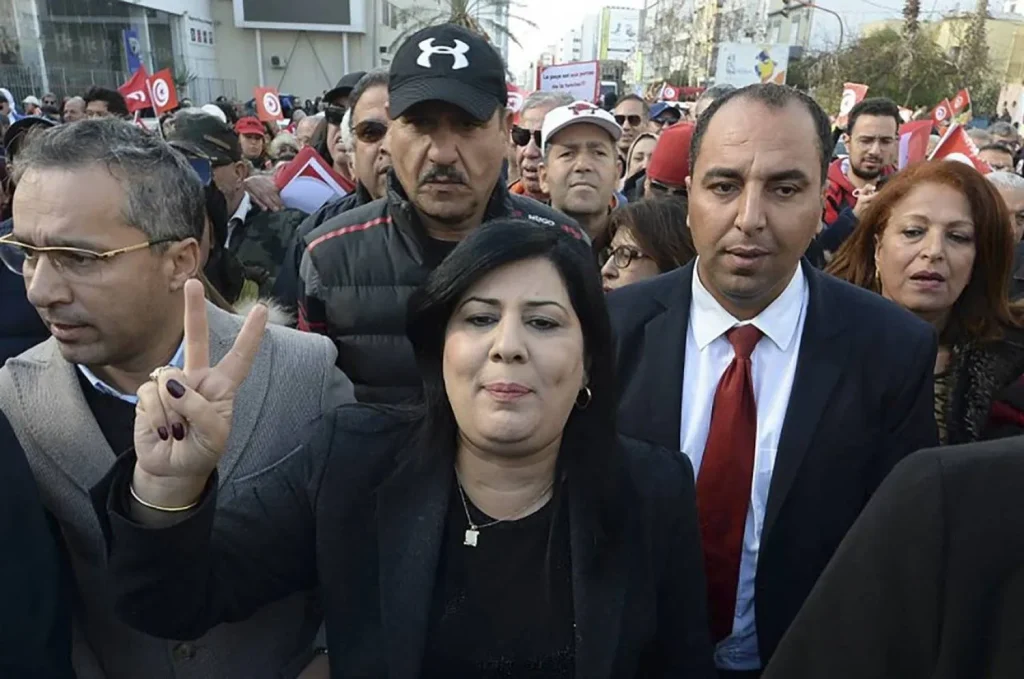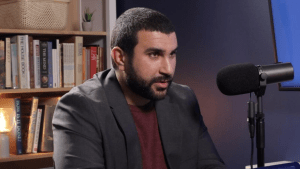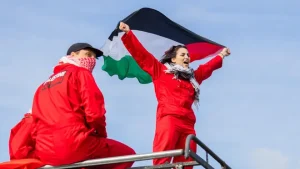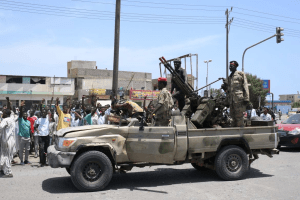Tunisia: protests gather in support of Abir Moussi

Dozens in northwestern Tunisia gathered outside the prison of Bulla Regia on June 29th in protest to the incarceration of opposition leader Abir Moussi, according to The New Arab.
Abir Moussi, a lawyer and head of the right-wing Free Destourian Party (PDL), was convicted on the 12th of June under Decree-Law 54. The law was implemented in 2022, criminalising the spread of “false information” that is perceived to damage state institutions.
Moussi is renowned in Tunisia for being a controversial political leader, previously being an official in President Zine El Abidine Ben Ali’s ruling party. She is a vocal opponent of Islamist figures such as the imprisoned Ennahda leader, Rached Ghannouchi. Her political popularity grew vastly over the years, with her supporters mainly consisting of those reminiscent of the pre-revolutionary era. Before her arrest, she was campaigning to become the current President Kais Saied’s strongest competitor in the 2024 election.
Moussi was charged after she publicly criticised the inconsistencies in the legislative elections. She also reproached the Independent High Authority on Elections (ISIE), which is Tunisia’s electoral commission. Many of the protesters consider her detention a form of political persecution, calling for her immediate release amid concerns about lack of adequate medical care.
Human rights organisations have also condemned Moussi’s arrest, labelling it as a political strategy to silence opposition voices. Since his controversial rise to power in 2021, President Saied’s administration has intensified the repression of opposing political figures, as well as journalists. Saied abolished the Supreme Judicial Council in 2022 on the grounds of bias and lack of effectiveness. He then appointed himself general authority over judicial appointments, essentially giving himself control over the strongest legal entity in the country.
Saied’s crackdown in 2023 ensnared many notable figures, including former president Moncef Marzouki, who was given a 22-year sentence. In terms of general civic actors, Human Rights Watch (HRW) predicts over 50 journalists, lawyers, and activists have also been detained. Saied has justified many of the arrests by referring to some of these individuals as “terrorists.”
Lama Fakih, HRW’s Middle East and North Africa director stated: “By attacking journalists and other media figures, Saied’s government is moving to put the last nail in the coffin of Tunisia’s civic space.”
As much as the dissent on June 29th was about the safety and release of Abir Moussi. The protests also reflected a broader disconnect with what many see as Tunisia’s slide toward authoritarianism under President Saied.
The New Arab
Want to chase the pulse of North Africa?
Subscribe to receive our FREE weekly PDF magazine














